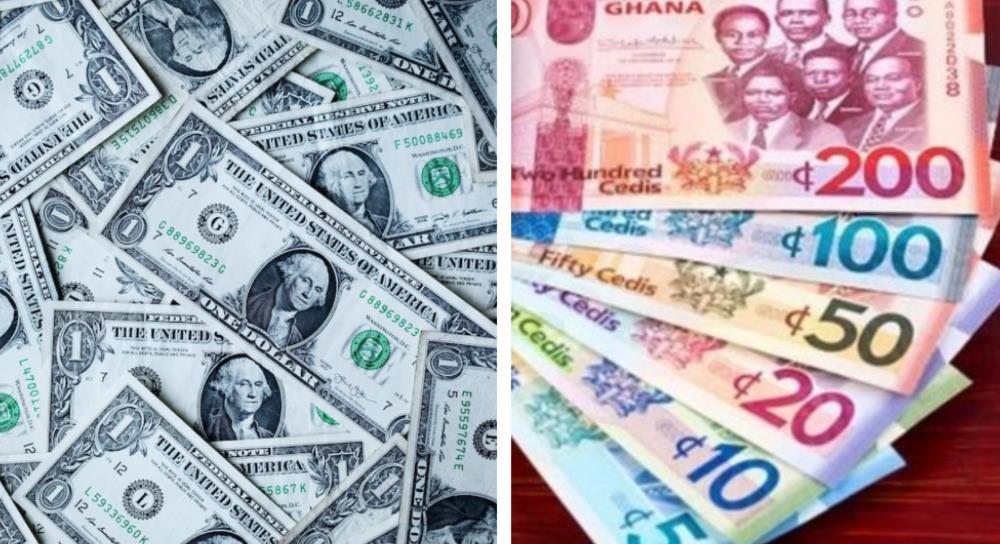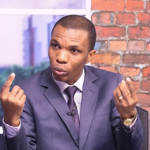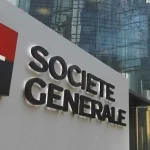The Ghana cedi continues to lose ground to the major trading currencies this week, especially the US dollar.
Businesses have expressed their frustration over the current state of the cedi.
Economists, currency, and financial analysts say that this has been occasioned by the persistent corporate demand for dollars.
They believe the cedi’s poor performance is due to both domestic and foreign factors such as a rising US dollar against emerging markets currencies.
A lecturer in the Department of Finance at the University of Ghana Business School, Dr. Benjamin Amoah asserts that the constant depreciation of the cedi stems from weaknesses in the economy’s fundamentals.
According to him, certain factors including inflation, unemployment, and interest rates have risen, and the government’s inability to control them has resulted in the free fall.
Dr. Amoah said “The fundamentals are weak. We should not play jokes about it. The truth is that the fundamentals are very weak. What is the fundamental here? What is the inflation rate as we speak now and what has been the inflation rate over time, very high? What is interest rate, that is the fundamental factor, it is very high.”
“What is the unemployment rate now? The unemployment rate is very high. What is our balance of payment position, it is very high and these are the very fundamentals that are used in accessing the exchange rate.”
He explained that addressing just one of the indicators does not resolve the depreciation of the cedi; rather, it requires effective management of each of these factors.
The cedi was trading against the dollar at GH₵ 11.98 on Monday, May 13 but now hovering around GH₵ 14.90 at the close of business day, May 14 at the forex bureaus resulting in a depreciation rate of close to 20% since the beginning of the year.
The Director of Business Operations at Dalex Finance, Joe Jackson says the current free fall of the cedi against major trading currencies can be blamed on the unplanned injection of dollars into the economy when Ghana was kicked out of the international market.
“The cedi depreciation is the lapse effect after we fell out of the international market. If we had not pumped that much money into the economy, we would not be facing this situation. The major reason is that when we pumped in deficit financing, this is the effect we are now experiencing.”
On the domestic front, he called on the government to be fiscally disciplined ahead of the December 7 polls to prevent the cedi from further depreciation.
He envisaged the government not to run a budget deficit, which he said will spell doom for the already struggling cedi and Ghanaian economy.
“What the government needs to do at this moment is to be fiscally disciplined and spend within its budget. The government must cut down on its spending. Make sure that you don’t spend more than you promised in this election year.
“Remember, people like Bloomberg and others do not see that this government can spend within its budget,” Mr. Jackson added.
Bloomberg reports that the Cedi’s depreciation is being exacerbated by a decline in cocoa earnings as exports fell by about $500 million in January and February 2024 due to poor weather conditions and the swollen shoot disease.
The Bloomberg report added that the current depreciation depicts the cedi’s record-breaking weakening cycle that has left analysts to forecast worse times for the currency over elevated risks of election-year funding and stalled debt deals.
Consequently, economist, Prof Godfred Bokpin, says the Ghana cedi can only be stabilized temporarily from further depreciation in its performance against major foreign currencies.
Prof. Bokpin believes the cedi’s lack of robust macroeconomic policy support has occasioned this trend.
He explained that the cedi has persistently suffered depreciation since its introduction in July 1965.
He anticipates intermittent periods of relative stability but underscores the likelihood of continued depreciation, even with optimal economic measures in place.
“If we do everything right, we will still expect that the cedi will depreciate by a certain margin given the relative strength of the economy.
April 2024 inflation eased to 25% year-on-year from the March 2024 rate of 25.8%. The inflation cooling was supported by a decline in food inflation to 26.8%.
The cedi is presently selling at GH¢14.90 at the Forex bureau. The Bank of Ghana is however quoting one US dollar to GH¢13.35 as of the close of business day May 14.
Fitch, however, forecasts that the cedi will end 2024 at GH¢12.25 to a dollar.
















